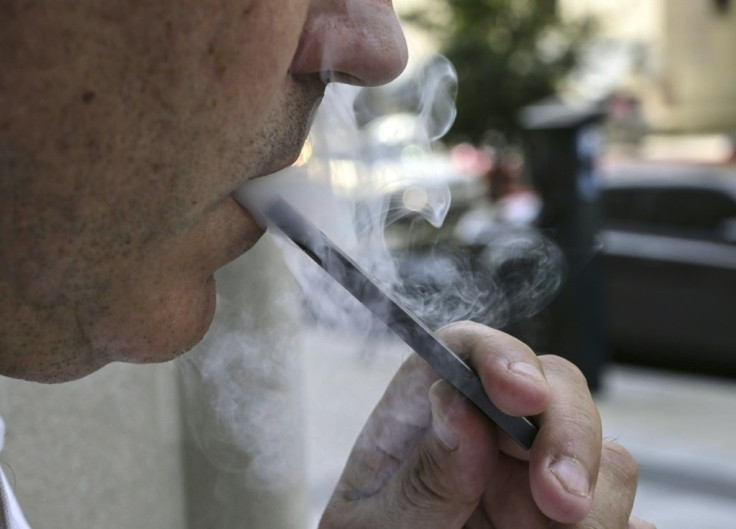Illicit THC Vape Brand May Be Responsible For E-Cig Illnesses, Deaths

The electronic cigarette industry was upended in recent weeks over the surge in vaping-related lung illnesses and deaths, and it may have even contributed to Philip Morris International (NYSE:PM) and Altria (NYSE:MO) breaking off merger talks.
But as health officials looked more closely into the root cause of the spike in illnesses, it turns out that the legal e-cig pods and e-liquids most vapers use may not be the culprit after all, but rather an illicit cartridge called Dank and containing THC could be responsible.
"Dank" is a slang term for especially potent marijuana, but no company actually manufactures the pods. Instead, it is packaging that can be purchased online, often from Chinese manufacturers who sell empty pods to fill for just pennies, which then can be sold as one's own. The homebrew ingredients that end up in the cartridges have not been tested or approved, and may contain harmful additives.
Think of it as the kind of bathtub alcohol that used to be whipped up during Prohibition -- and the outcome is apparently just as deadly.
A sudden spike in risk
Earlier this year, the U.S. Food and Drug Administration began investigating an outbreak of illnesses that seemed to be related to e-cigs, and as the number of cases grew -- they now total more than 1,000 -- the issue got wrapped up in the separate investigation the agency was conducting into Juul Labs, the leading manufacturer of the devices.
Because Altria had taken a 35% stake in the e-cig maker, it was drawn into the controversy as well, and as the health crisis reached a fever pitch, Philip Morris International got cold feet.
Juul was under fire for several reasons, such as executives purportedly telling students during a school program that Juul e-cigs were safer than traditional cigarettes, a no-no because the FDA hasn't given its stamp of approval to such language, as well as teen use seemingly rising very rapidly. But the cascade of stories about people falling ill and dying from vaping likely helped Philip Morris make the decision to back out of merger talks with Altria.
The global tobacco giant already gained FDA approval for its IQOS heated tobacco product and didn't need the agency potentially revisiting the issue. It ultimately decided its marketing and distribution agreement with Altria for the IQOS was all the exposure it needed in the U.S.
A dark path to market
Still, it's certain the FDA had an inkling early on that regular vape pods and e-liquids were not the cause of the illnesses, as it had warned against modifying the devices or using homebrew e-liquids. There was also the fact that most users were also citing marijuana or THC usage -- THC is the psychotropic chemical compound found in cannabis -- as coincidental in the cases.
It was through further investigation that officials began hearing users say they had used the Dank brand and surmised that sellers were buying the empty cartridges, filling them with e-liquid, and then adding CBD oil, which they further suspect has not been lab-tested.
Because the packaging looks like a name brand and can even be found for sale in vape shops, users likely didn't know they were buying a potentially lethal product. And because the Dank packaging is generic and not tied to a specific manufacturer, it may be difficult to trace the ultimate source.
Suffering the consequences
In the meantime, the e-cig industry has been dinged again. Manufacturers like Juul have been lumped in with these illicit vape products and it may cause people to shy away from using them, not understanding that legal branded e-liquids have been lab-tested for safety.
With all the headline-inducing investigations into the leading e-cig maker, this crisis was a black eye that bruised the industry at a bad time.
Rich Duprey has no position in any of the stocks mentioned. The Motley Fool has no position in any of the stocks mentioned. The Motley Fool has a disclosure policy.
This article originally appeared in The Motley Fool.





















